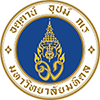Six PhD Positions with Fully-funded Scholarships at MUSCBC
We are hiring six enthusiastic early career scientists whom we can offer a four year fully-funded scholarship for conducting PhD research at Department of Biochemistry, Faculty of Science, Mahidol University. These scholarships provide an average monthly stipend of at least 15,000 THB along with tuition fees, accommodation charges, health insurance and so on. PhD students will study different aspects of biochemistry, molecular biology, and cell biology under our International Graduate Program in Biochemistry.
We are looking for different profiles that will combine in a multidisciplinary team of scientists, embedded within MUSCBC:
Project 1: Asst. Prof. Kanlaya Katewongsa
Project 2: Prof. Sarawut Jitrapakdee
Project 3: Assoc. Prof. Sittinan Chanarat
Project 4: Prof. Tavan Janvilisri
Project 5: Assoc. Prof. Thaned Kangsamaksin
Project 6: Assoc. Prof. Varodom Charoensawan
Eligibility: For all positions, a person must be aged 40 or under and a Bachelor or Master of Science degree is required; BSc GPAx ≥ 3.25, MSc GPAx ≥ 3.5. Excellent knowledge of the English language is a prerequisite; IELTS ≥ 6, TOEFL-iBT ≥ 79, or MU GRAD Plus ≥ 90. Candidates of all nationalities are eligible.
We welcome applications by 15/6/2023 or until filled. Applications must include a CV and a motivation letter, sent to sittinan.cha@mahidol.edu. Informal inquiries are also welcome.
Project 1: Development of theranostic nanoparticles for cancer cell targeting
Asst. Prof. Kanlaya Katewongsa
This project seeks a student interested in designing theranostic nanoparticles (NPs) with both diagnostic and therapeutic properties. The NPs will be optimized to deliver large doses of anti-cancer drugs or genes to diseased cells, minimizing side effects from standard chemotherapies, enhancing permeability and retention in cancer tissues, and improving drug stability. Additionally, The NPs surface will be modified with biomolecules like peptides, antibodies, or nucleic acids to enable precise delivery to specific cancer cells such as breast or colorectal cancer. The student will also study the relevant cellular mechanisms and evaluate the efficacy of these NPs in in vitro system.
Please contact Asst. Prof. Kanlaya Katewongsa, kanlaya.pra@mahidol.edu, for more information.
Project 2
Prof. Sarawut Jitrapakdee
Cancer is a disease caused by the deregulation of cell growth, resulting in rapid proliferation. Cancer cells can invade the surrounding and distant tissues to establish growth at the secondary location known as metastasis. While staying in the neoplastic state, the cancer cell maintains its highly malignant status by sustaining the proliferative signal, invasion and metastasis, and angiogenesis while resisting growth inhibition, programmed cell death, and altered energy metabolism. Cellular metabolism is a central biochemical pathway that enables cells to produce energy and biomolecules as cellular components. Depletion of energy level and cellular building blocks can affect the bioenergetic status, causing cancer cell death. Targeting cancer metabolism has paved the way for developing novel metabolism-targeted therapeutic approaches. Our laboratory is emphasized cancer metabolism using a multidisciplinary approach including genetic modification, cell imaging, metabolism, organic chemistry, and nanotechnology, aiming at:
- Identifying novel drugs targeted cancer metabolism
- Determining cellular & molecular mechanisms underlying drug actions
Please contact Prof. Sarawut Jitrapakdee, sarawut.jit@mahidol.edu, for more information.
Project 3
Assoc. Prof. Sittinan Chanarat
A) Image-based cell phenotyping with deep learning for studying lipodystrophic Type 2 diabetes: This research project aims to investigate the relationship between lipodystrophic Type 2 diabetes and lipid metabolism using image-based cell phenotyping with deep learning techniques. By analyzing cellular images, we will be able to identify various cellular components such as lipid droplets and mitochondria, and relate them to the cellular phenotypes of interest. The use of deep learning algorithms will enable the creation of accurate and efficient models for predicting the phenotypic responses of cells to various stimuli, providing valuable insights into the mechanisms underlying lipodystrophic Type 2 diabetes.
B) Molecular mechanisms underlying Cryptococcus pleomorphism: C. neoformans is able to exhibit pleomorphism, an ability to exist in different forms or shapes during its life cycle. It has been shown that its pleomorphism is associated with virulence. Particularly, hypervirulent strains of C. neoformans exhibit a larger size of capsule, higher variation in cell size, and an increase in shed capsules and microcells. The mechanism of the pleomorphism, however, is largely unknown. This project will use multidisciplinary approaches to better understand the mechanism and hopefully discover a clue towards developing a cure for the disease.
Please contact Assoc. Prof. Sittinan Chanarat, sittinan.cha@mahidol.edu, for more information.
Project 4
Prof. Tavan Janvilisri
(Please visit TJ lab’s website for more information.)
Project 5
Assoc. Prof. Thaned Kangsamaksin
Project 6
Assoc. Prof. Varodom Charoensawan
(Please visit VC lab’s website for more information.)
